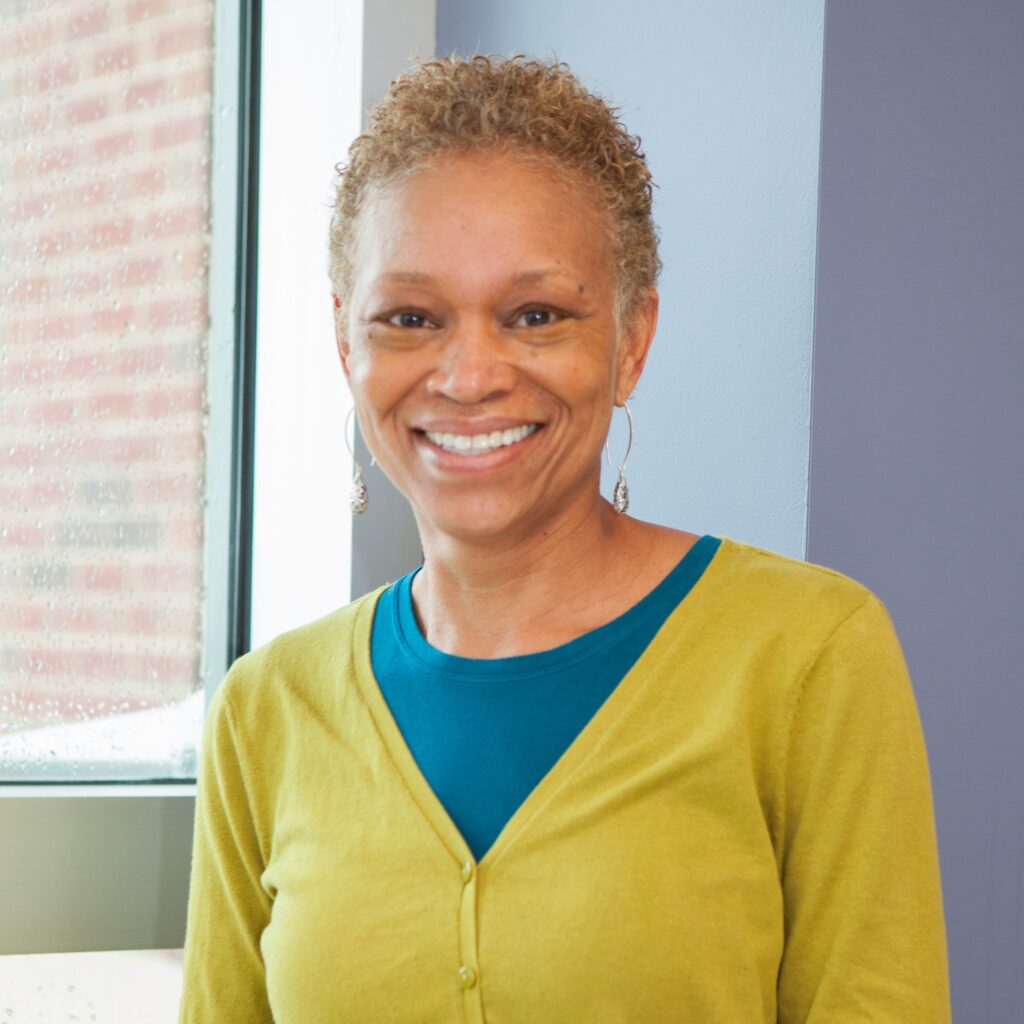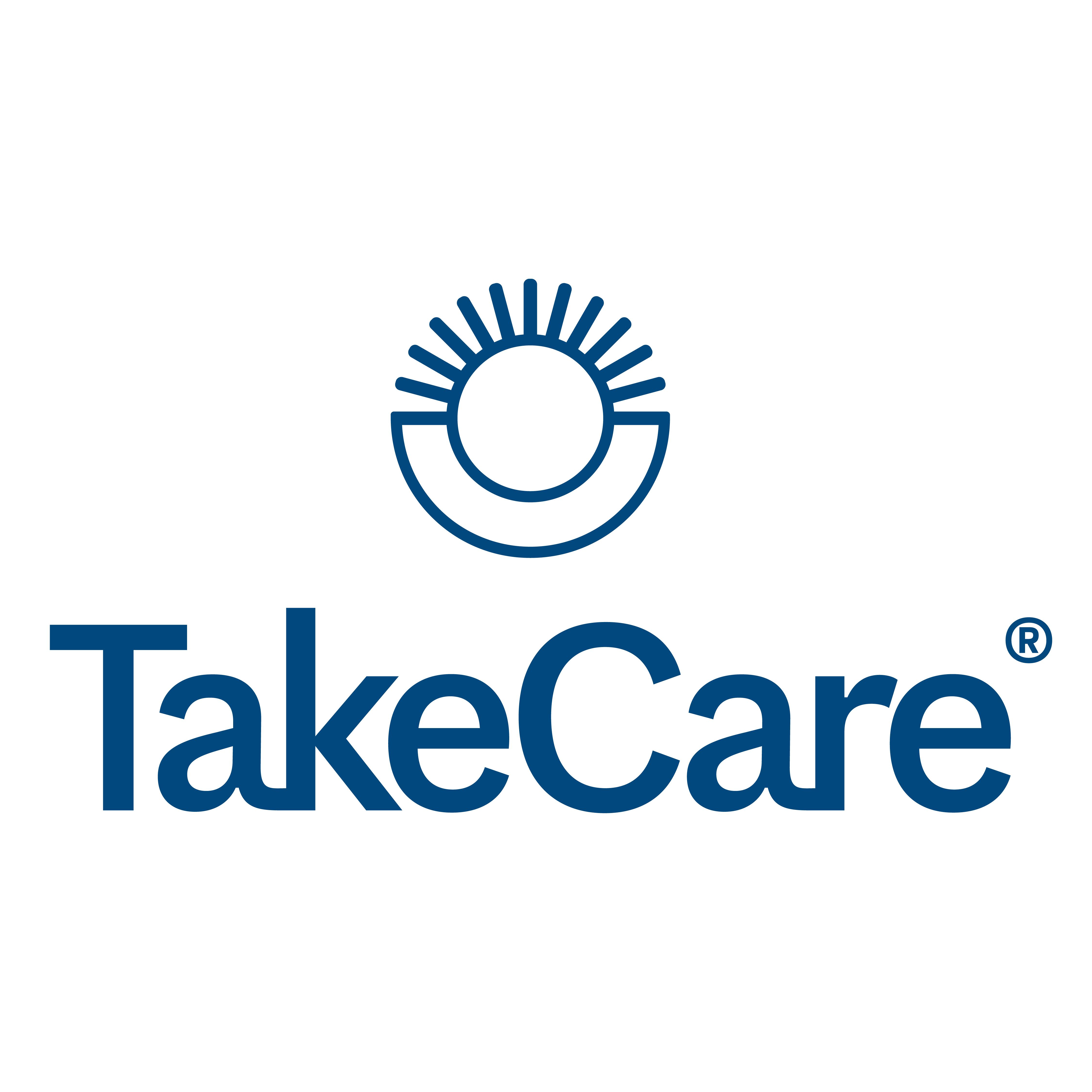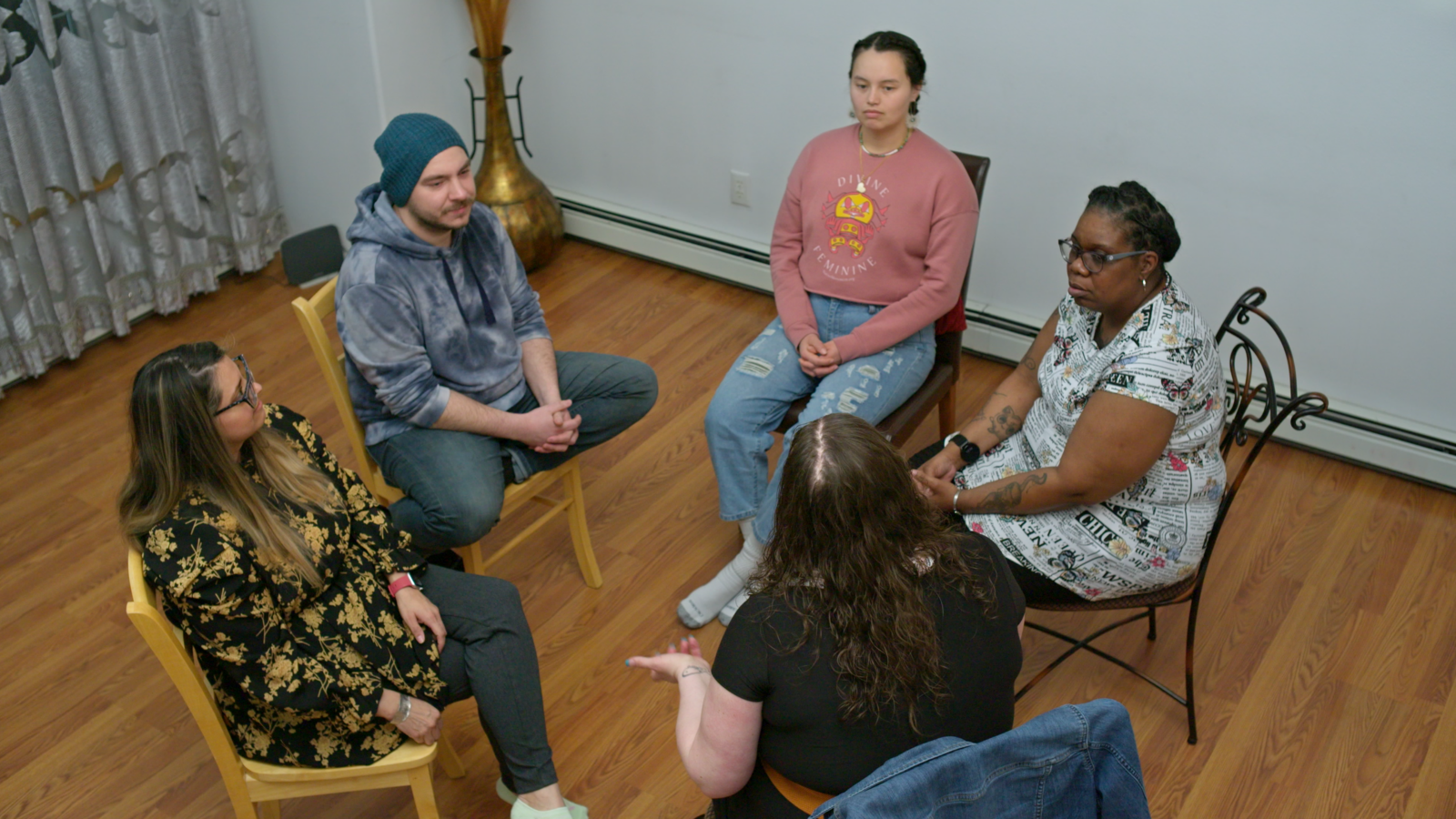“I couldn’t accept the loss of my son, and I still couldn’t accept my mental illness,” said Keyda, a 45-year-old woman who struggled for years with mental health challenges. When her teenaged son, Emmanuel was shot and killed, she did not think she could go on. But during an online search for help, she happened upon a peer support group, and she says it saved her life.
Keyda tells her gripping story in the short film “Peer to Peer Healing,” part of TakeCare, a national initiative rooted in science that provides the reflection, motivation, and implementation to inspire people to create health and well-being in their lives. I am honored to have served as Health Advisor on the film, which demonstrates the powerful role that peer support can play in healing and recovery.
Though Keyda had long resisted working with a therapist, soon she found herself talking with a peer support specialist named Jen at a local behavioral health center. Working with Jen and the group, Keyda discovered what extensive research has established: that talking with a peer—someone who’s gone through something similar and gotten through it—can be a critical step in the healing process.
A Flexible Model of Support
In my research at Yale University’s Department of Psychiatry, I’ve found that peer support can be helpful for people facing a wide range of life challenges, whether it’s reentering the community after prison, overcoming a substance use disorder, navigating the health care system or, like Keyda, facing numerous challenges all at once. Peer support can be done in a group or one-on-one, and it can be delivered in a traditional setting like a hospital or health clinic, or in a “peer-run organization” started by individuals who want to help others. Some people access peer support after years of trying other approaches while others come to it at the very start of their journey.
Keyda discovered peer support after years of struggling and resisting other types of help. Finally, she said, “I told my entire story from beginning to end, and I was embraced, I was supported by every person in that room.” Soon, she began to accept who she was and where she was in her life. Keyda began to take care of herself, acknowledging what she needed to address her mental health. For her, this was a combined approach—seeing a therapist, taking medication, and receiving peer support.
A “Do With” Approach
When Keyda says, “Peer support gave me strength and made me proud of who I was and what I’d gone through,” she’s articulating one of the most powerful aspects of peer support. Rather than what we call a “do for” approach, peer support encourages a “do with” approach. Many people—especially those with complex and long-term mental health issues—wind up experiencing learned helplessness because well-meaning professionals do things for them. They make calls, make decisions, or arrange services for them. But this approach undermines the whole recovery framework, which is really about working with people to take charge of their own lives. Keyda’s new strength and pride enabled her to make decisions and forge her own path toward recovery.
While peer support can be essential to healing, many people benefit from a multifaceted, interdisciplinary approach. This may include a healthcare provider, a mental health professional, a case manager or social worker, and a peer support specialist. As Jen, Keyda’s peer support specialist explains in the film, “Peer support is the presence of someone who has already worked through their own recovery. We don’t take away from the value of a therapist or a case manager or anyone on that team. What we do is bring a different set of eyes and ears to the table. You’re not the only person in this circle who’s felt this way. We’re going to catch you.”
Trust, Engagement and Recovery
The element of trust is vital to engaging in peer support. People embrace their well-being journey more readily when they build trust through peer support. And the process can also benefit the person providing the support. In fact, I’m currently studying this very phenomenon—how and why being a peer support specialist can help sustain the supporter’s recovery. This has certainly been the case for Keyda, who has gone on to become a certified peer support specialist herself and is now helping others. “I definitely felt alone for a long time in my life because I couldn’t share my hurts. I couldn’t share my pain,” she says. As a peer support specialist, she now helps others by sharing her strength, her experience, and her ongoing story of recovery.
You can read this blog on TakeCare.

Chyrell D. Bellamy, PhD, MSW, served as advisor on the film, “Peer to Peer Healing,” as part of The Healthy US Collaborative’s TakeCare initiative. She is a Professor in Yale University’s Department of Psychiatry, Director of the Yale Program for Recovery and Community Health, and Director of the Yale Lived Experience Transformational Leadership Academy. As Director of Peer Services and Research, she provides instruction on peer curricula development and training based on her research and practice experience with peer employees since 1993. Dr. Bellamy is also a Senior Policy Adviser for the Office of the Commissioner for the State of Connecticut Department of Mental Health and Addiction Services.


